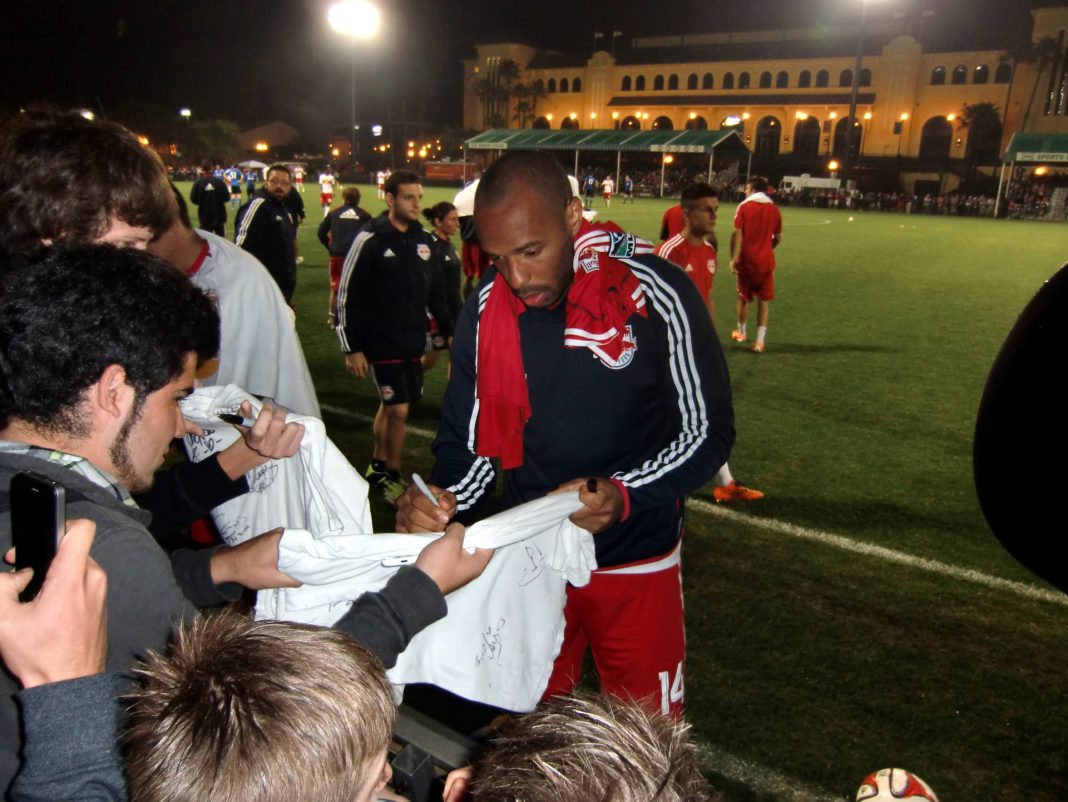What will you watch? That’s always the complaint, the second the final whistle blows on the last game of the season and football loses all its appeal. This is not a show going on hiatus. This is a love letter to the summer offseason, unassuming, underrated. What will you watch? The undercurrents, obviously. The comings and goings. The silence of millions of pounds changing hands, dispensed to you only in emoji-laden Instagram captions, poorly-Photoshopped graphics, insider traders masquerading as journalists. Rodrygo to Arsenal. Wirtz to City. Sunderland til you die, or maybe just ‘til the Prem.
The death of the offseason has been in many ways facilitated by the rise of social media, best illustrated in the Instagram carousel of the same player’s face superimposed on the kits of about five different clubs. There’s something unnerving about that third-order simulacrum, of how close we are to a landscape where you can never be sure what’s real and what’s not. Like it or not, you know news before you even hear it, before it even happens. It’s almost enough to ruin the summer.
Almost. Almost, because despite it all, the dreamy haze of possibility persists. The romance of it. The chasm of hope. The dog days—or maybe not even that. Maybe this little window, when everything’s almost wrapped up, when the old’s not quite out, the breather before the new comes rolling in. All my life the sun has set at precisely the same time every day; I’m only now understanding how much more different a summer makes a season, how the days stretch like elastic and turn it to something almost eternal.
But I love it, and all the preseason tours it comes with. All of the bark and none of the bite. Football in places it shouldn’t be. A North London derby? Sure. In Hong Kong? Hey, hang on a minute. There’s something so quintessentially English about them that it’s strange to see them in Madrid and Milan, let alone Asia or America. Things like that expose the whole machine for what it really is: Beyonce fills stadiums, Messi fills arenas. It’s one thing to know it in your heart, to have it washed away by the brick-and-mortar of the stadium in the backyard of your city, another to have it laid out in the open like that: the athlete as touring artist, a laundry list of friendly opponents as special guests.
A cynic calls it for what it is: a capitalist ploy to wring revenue from its international audiences, where people who can’t afford to see them play regularly will splash out on a once-in-a-lifetime chance to watch their team live. But I’m from Singapore and the last time Arsenal played here they still had Özil. You can be a cynic and still be sentimental, criticise it and still fall for the twinge of nostalgia in your heart anyway. That’s what being a lover is all about.
And there’s something about these matches that makes them weightless. It’s precisely because they truly don’t matter that you can enjoy them with an uncomplicated eye, bend their results to fit into your agenda any which way. We’ve gotten a little too comfortable using that descriptor on games against relegation fodder: win, draw, or lose, those games still put points on the board. Tip over into June and suddenly anything played has absolutely no bearing on anything whatsoever; suddenly there’s room for interpretation. Lose a friendly against your sworn rival and it’s because you’re just not at full sharpness yet; win and it’s a portent of how your season shakes out. The league feels like it’s been won or lost before it even starts. The league feels like it can’t come soon enough.
It’s a fleeting thing, the offseason. Disappears into the sand with nothing to show for it. With seasons, at least, you’ve got records, consequences, trophies, goals. Meanwhile the summer gets shrunk down to signings and no one remembers what happened in those sun-soaked days, the space between a year and the next, the breathless expectation. Which is a pity, because sometimes you get real gems: in the beginning of August last year, Arsenal and Leverkusen met, managed by Mikel Arteta and Xabi Alonso, childhood friends who went on to have vastly different careers. Each saddled with a prodigal son: Kai Havertz, who’d risen to prominence at Leverkusen, and Granit Xhaka, who’d gone from Arsenal’s captain to disgrace to fan favourite in three years. Each with something to prove. Arsenal won that game four goals to one, and went on to finish the season in second place, but it was Leverkusen who took a leaf out of their book and went invincible for the first time in their league’s history. There are narratives that get buried by the relentless march of time; enjoy them while they last. They’ll be gone with the summer, gold and flowing, by the time fall rolls around.


